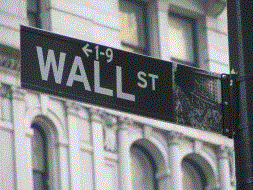Derivatives face radical change as Senate passes reform bill

The US Senate passed the Wall Street Reform Bill last night, taking the lead among developed nations in addressing the causes of the financial crisis and giving Democrats victory in perhaps the hardest battle in their campaign to strengthen financial regulation.
If it becomes law, the bill will force much more of the over the counter derivatives market to be traded on exchanges or cleared through central counterparties, and will oblige banks to spin off some of their derivatives trading activities into separate entities – which the Federal Reserve and Treasury had opposed. Companies using derivatives for hedging will get exemptions from some collateralisation rules.
Tougher oversight will be designed to ensure excessive leverage gets spotted and dealt with early. Although taxpayer-funded bailouts remain a possibility, the government will try to reclaim its outlay afterwards through a levy on banks.
But the law gives regulators leeway to decide whether to implement the Volcker Rule, which would forbid deposit-taking banks from proprietary trading.
Speaking in the White House garden, President Barack Obama said: “Over the last year, the financial industry has repeatedly tried to end this reform with hordes of lobbyists and millions of dollars in ads. And when they couldn’t kill it, they tried to water it down with special interest loopholes and carve-outs aimed at undermining real change.
“Today, I think it’s fair to say that these efforts have failed. Today, Democrats and a handful of Republicans in the Senate have voted to break the filibuster and allow a final debate and vote on financial reform that will protect consumers, protect our economy, and hold Wall Street accountable.”
The Senate bill must now be merged with an equivalent piece of legislation that passed the House of Representatives in December, and then be approved by both chambers. But backers hope Obama will be able to sign it into law before the July 4 holiday.
The wide-ranging reforms to financial services include measures on mortgage broking and consumer protection, but also substantial sections on the derivative markets. The aim is to make markets more robust and transparent, and to lessen the chance of systemic risk building up that could set of a chain reaction of financial firms collapsing.
Championed by Senator Christopher Dodd, the bill had the support of nearly all Democrats and in the end a few Republican votes, enabling it to win by 59 votes to 39 and avoid a timewasting filibuster.
Republicans had fought the bill hard before that, during three weeks of debate in the Senate and before that in committee, and defeated some measures, such as controls on conflicts of interest and own-account trading.
But the bill as passed, which is similar in many ways to the House bill, ushers in the prospect of a much more stringently regulated financial sector. At the same time, it enshrines in law an approach imbued with vigilance against some new risks that have grown up in the 80 years since the last thorough financial reforms of the 1930s.
The moral hazard that suffuses banks that are too big to fail is one of these; another is the volatility that can be introduced by unfunded positions like derivatives.
The good news for futures and options markets is that their model of transparent trading on exchanges with price disclosure and orderly risk mitigation has not been challenged – in fact, it remains the regulators’ goal to make other markets more like that.
Jon Hay +44 207 779 8372 jhay@fow.comFound this useful?
Take a complimentary trial of the FOW Marketing Intelligence Platform – the comprehensive source of news and analysis across the buy- and sell- side.
Gain access to:
- A single source of in-depth news, insight and analysis across Asset Management, Securities Finance, Custody, Fund Services and Derivatives
- Our interactive database, optimized to enable you to summarise data and build graphs outlining market activity
- Exclusive whitepapers, supplements and industry analysis curated and published by Futures & Options World
- Breaking news, daily and weekly alerts on the markets most relevant to you


